Five households are trapped on the wrong side of a dangerous bridge
Dingman Township. Utility repair trucks, garbage trucks, delivery trucks, and fuel trucks won’t cross the private bridge. The stranded residents fear for their lives whenever they have to cross it. But the owner can’t afford to fix the bridge, and there’s no other way in or out.
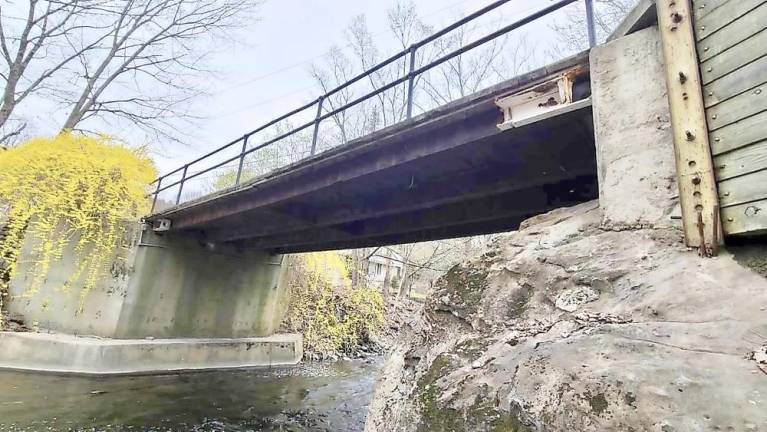
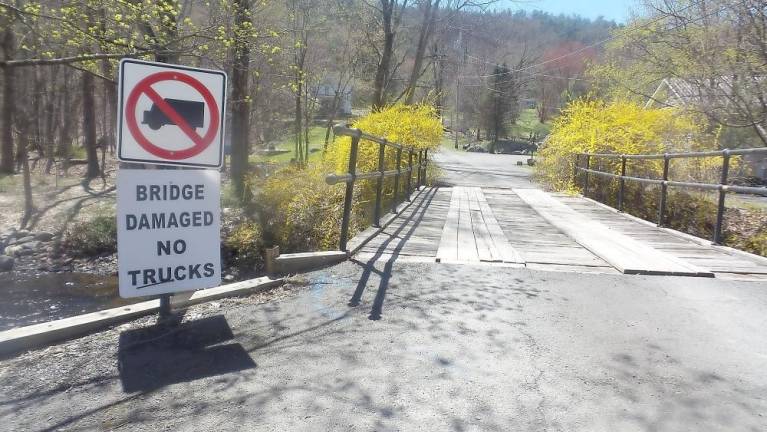
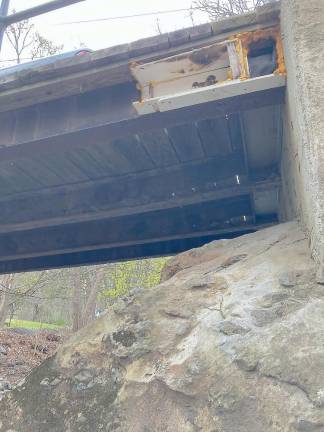
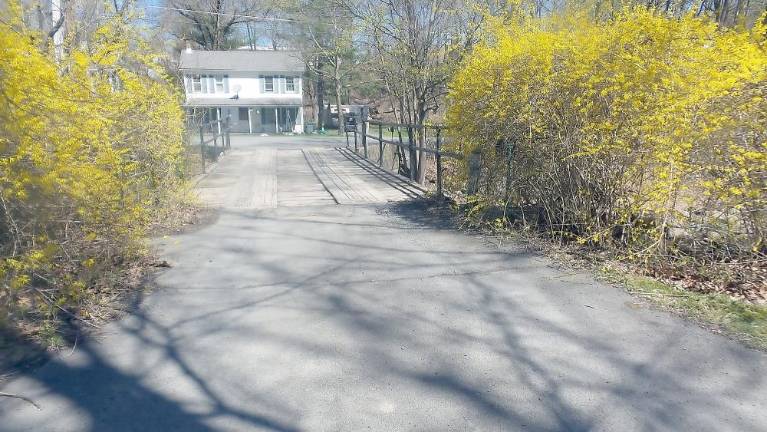

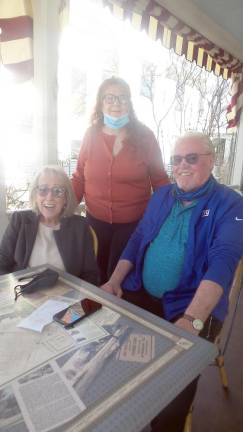
Five households are stuck on the wrong side of a dangerous bridge on Wyckoff Lane. The owner said she doesn’t have the money to fix the bridge, which terrifies everyone who has to cross it.
Susan Whitenack drives her husband to New Jersey every day for medical treatments. When they cross, they unfasten their seatbelts and open the windows, ready to make a quick escape. She said fear is her companion now.
The private bridge crosses the Sawkill Creek. The stranded households live on the Dingman Township side, national parkland is on the other. A sign at the bridge says no trucks can cross. There’s no other way in or out.
Babette Wright Smith owns the bridge, the house to the right, and two other rental properties on Wyckoff Lane. She lives with her grandson. She hasn’t made bridge repairs in years. She told the Courier she will write a letter to the editor explaining the situation more fully.
Whitenack said there used to be a sign at the bridge saying it would hold ten tons. Now, they have no idea how much weight the bridge can hold.
When the Wyckoff Lane residents need fuel, they bring it home in small containers. They have to pay more since they’re buying small quantities. One elderly household fills its oil tank 10 gallons at a time because that’s all they can carry.
Whenever they order goods, they give a friend’s address. Now and then, a Fed-Ex truck will risk the crossing. But mostly the families pick up packages from friends in the area because delivery drivers usually will not cross the bridge.
They wheel their garbage containers across. This past stormy winter, that proved to be quite a feat. Bob Bagley said he knows when the garbage truck comes. Sometimes, when the weather is snowy or unpredictable, he’ll wait with his garbage for 30 or more minutes before the truck arrives.
If the electricity goes down, big utility trucks won’t cross the bridge. Repairs are made by people who, out of the kindness of their hearts, put the necessary tools and materials in a lightweight vehicle, hold their breath, and cross.
The Wyckoff Lane residents can’t maintain their septic systems properly. Their homeowners’ insurance has been canceled. This past winter, a friend in a small truck delivered crushed rock to fill the deep potholes on Wyckoff Lane. The families say they’re paying taxes for services they’re not getting.
Barbara Alaimo said, “Nobody will come anymore. We have to depend on people who worry about us.”
She suffers from Lupus. “We’re trapped and we need help,” she said. “We are desperate for help.” She said she and her neighbors “have cried over this.”
All they can do is hope the bridge doesn’t cave while they’re on it. “We are going over the bridge until we fall in,” Bagley said. “We are in too much danger. I fear losing my money.”
They say their home investments are all they have, and that they are surviving on Social Security.
Melissa Mullins, her husband, and their two small children hold their breath each time they cross. Her husband’s truck makes the bridge sag. They bought their home when the bridge could hold ten tons. Now they fear for their lives whenever they cross.
The residents are unable to sell their homes; the dangerous private bridge has rendered them worthless. “We are in deep doo-do,” Alaimo said.
The township zoning officer, Chris Wood, called the problem “a private matter.” If a homeowners’ association were formed, he said, it could raise money for bridge repairs, with help likely from state or federal grants, but Wright would have to be part of it. He said the township could help with septic system repairs, for which grants and loans are definitely available, by bringing materials over a little at a time. He suggested the homeowners get in touch with their state and federal representatives.
Editor’s note: This story has been updated from the original to include comments by Chris Wood and Babette Wright Smith.
“Nobody will come anymore. We have to depend on people who worry about us. We’re trapped and we need help. We are desperate for help.” Barbara Alaimo